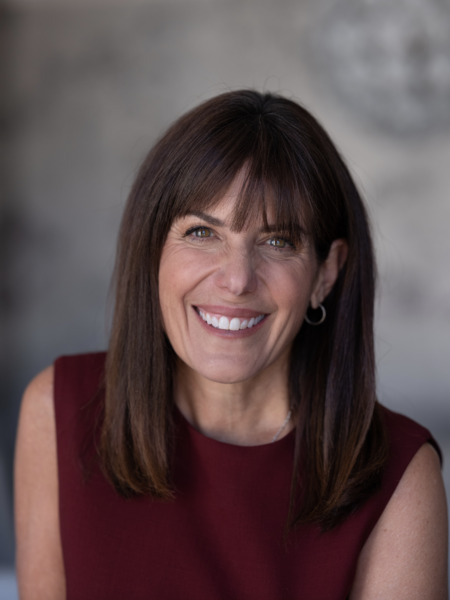
Jean Chatzky
"Making Money Make Sense"
Profile Links
Fee Range
$30,000Travels From
New York City, New York, United States
Jean Chatzky
Biography
Jean Chatzky is the founder and CEO of HerMoney, as well as the coaching programs FinanceFixx and InvestingFixx. She’s the host of the podcast "HerMoney With Jean Chatzky" and appears on the PBS TV show Opportunity Knock$. Jean is a columnist for AARP, and an education fellow for The Alliance for Lifetime Income. She was also the Financial Editor on NBC's Today Show for 25 years. Jean is an award-winning journalist and broadcaster, a New York Times and Wall Street Journal best-selling author, and a fierce advocate for financial literacy. Her latest books include Money Rules, Women with Money, and How To Money.
Jean Chatzky
Featured Video
Current: American Express OPEN for Women: CEO BootCamp
Jean Chatzky
Featured Keynote Programs
Your Forever Paycheck (Without Forever Work)
Americans have a problem – and we know it. Unless we do something, something big, something different, many of us are going to blow the through the money we’ve stashed away for retirement long before we run out of time. But what if that didn’t have to happen? What if we had a way to guarantee ourselves a Forever Paycheck – a pension of sorts that would last the rest of our lives? And what if having that Forever Paycheck meant that you could spend more, much more – double, even – the amount of money you’d likely spend if you simply pulled money out of your retirement accounts bit by bit. It’s possible. We have the ability to fix this problem in our own individual lives, with tools we already have access to today. The problem is, most people have no idea how. In this presentation, Jean Chatzky will break it down in a way that is easy to understand, easy to follow and easy to incorporate in your financial life
Women And Money
Create The Joyful, Less-Stressed, Purposeful (And, Yes, Rich) Life You Deserve
When it comes to money, women are different. Not just by the numbers -- the pay gap combined with breaks from the workforce to care for kids and older parents results in lower retirement balances which have to last for women’s longer lifetimes -- which are challenging enough. But when it comes to what we want to do with our money, and what we need it to do for us. In this candid, often funny speech, Jean talks through a three-part plan that involves understanding yourself in relationship to money, how the need for safety and security (while understandable) can hold women back, why investing for the long-term is non-negotiable, and how to use the rewards you reap to accomplish the other things women want most including establishing a legacy, being able to take care of the people we love, and feeling free to enjoy this life that we’ve built.
AgeProof
Living Longer Without Running Out Of Money Or Breaking A Hip
There’s no getting around this truth: Health and money are inextricably linked. If you don’t have good health, it will inevitably wreak havoc on your financial life. And if you haven’t built a solid financial foundation, staying healthy will eventually become a problem – particularly as you age. That’s why Jean teamed up with Dr. Michael Roizen, chief of wellness at the Cleveland Clinic, to create this multi-part plan to address both challenges at once. The best news: The same strategies work to improve both areas of your life. In this speech based on their New York Times Bestselling Book, Jean will talk through assessing your finances and your health (you can’t start until you know where you are), why automation is the magic bullet that makes your financial life much easier, a strategy for building a strong team to help you and the other steps to take today to start to become AgeProof.
5 Steps To Lasting Financial Resilience
If the pandemic taught us anything, it’s that resilience – the ability to adjust to or recover quickly from difficult situations -- is not just some nice-to-have skill. It’s a necessity. Fortunately, it’s also a skill you can learn and build over time by taking some very specific steps. In this speech custom crafted for coming out of the pandemic, Jean takes us through a seven-point plan to create a resilient financial life that will go the distance. She talks about the need for sufficient savings and how to build them (or rebuild them if you’ve used them during recent months), how to invest to meet your goals (so that you’re not worried about the whims of the markets), how to protect the people you love most with the appropriate insurance and an estate plan that checks all the boxes, and how and why giving back is a key to lasting happiness.
Frequently Asked Questions
How do I book Jean Chatzky for my event?
- Availability Check: Contact us with your event date and budget to verify if your desired speaker is available.
- Hold Date: We place a temporary "hold" on the speaker's calendar while you finalize internal approval.
- Contracting: We issue a contract outlining the fee, cancellation policy, and event expectations.
- Logistics: Once signed, our event management team handles all travel booking, itinerary, and AV requirements.
Why should I partner with Premiere Speakers Bureau rather than contacting speakers directly?
What makes Premiere Speakers Bureau unique compared to other agencies?
How does Premiere Speakers Bureau's 'Zero Cost Service' model work?
How are speaker fees structured, and what is typically included?
What are the standard policies for speaker travel and expenses?
Jean Chatzky's Featured & Related Topics
Find Similar Speakers Women in Business
Popular Speakers

Dr. Ben Carson

Earvin “Magic” Johnson

Liz Bohannon

Kim Bearden

Candy Valentino

Ron Clark

Ryan Leak











